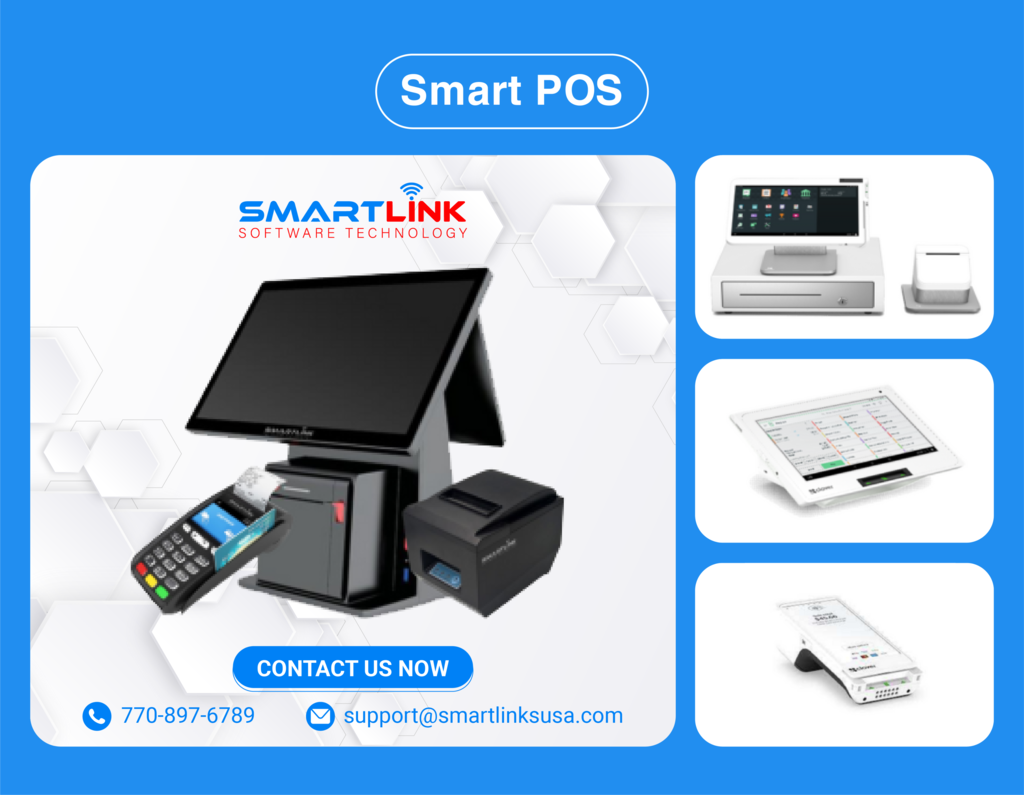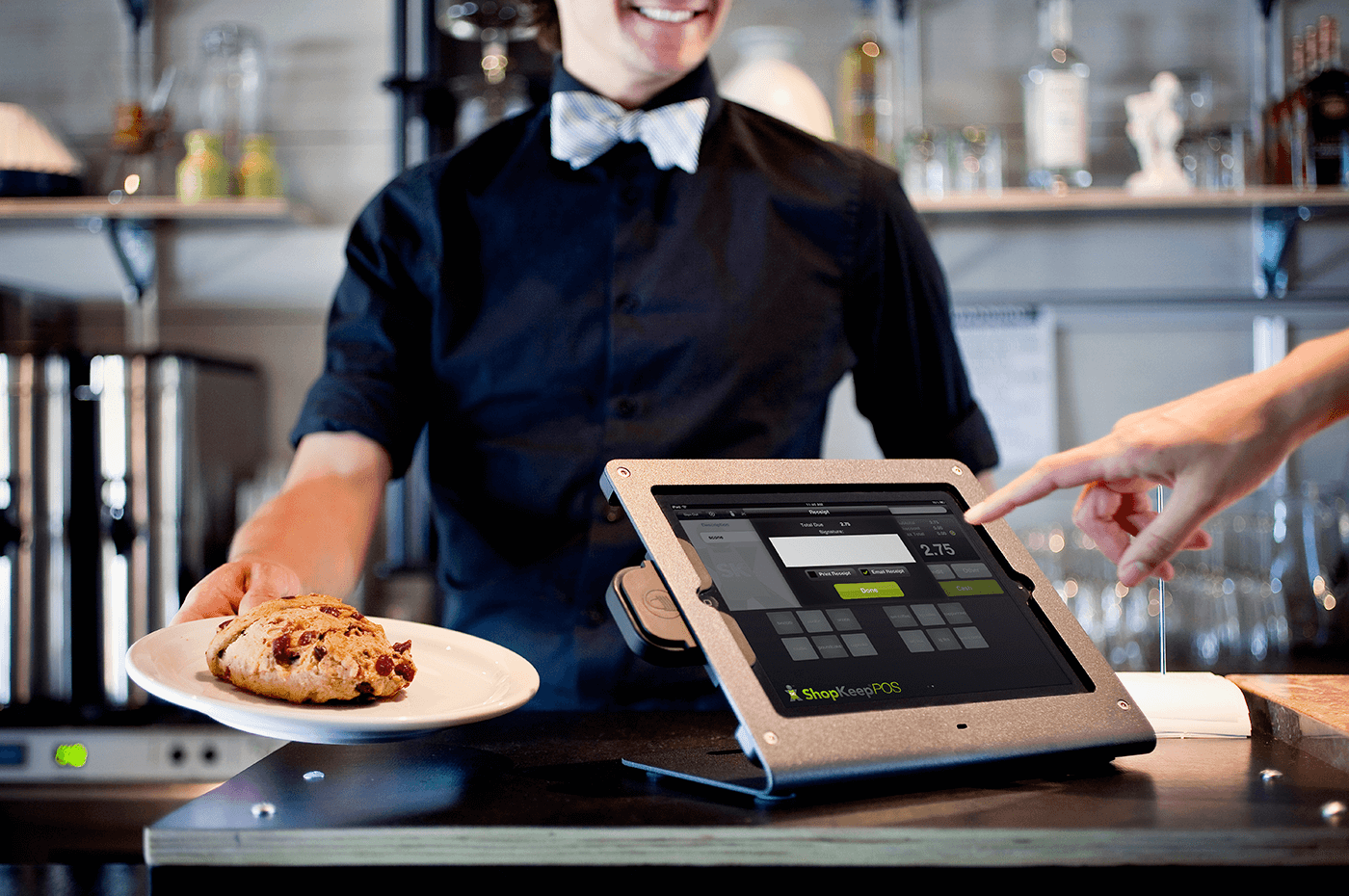In today’s digital age, every business sector is constantly evolving to adapt and grow. With the trend toward automation and optimized management, POS machines have become indispensable tools for modern businesses. The POS (Point of Sale) system is not only a payment management solution but also supports business process optimization, helping businesses operate more efficiently.
So, what is a POS machine? Why has it become an essential tool for all businesses? Let Smartlink help you explore this article.

1. What is a POS machine?
A POS (Point of Sale) machine is a device used to assist with payment processing and revenue management for businesses. From retail stores, restaurants, cafés, to nail salons and beauty services, the POS machine has become a crucial tool for tracking transactions and supporting business operations. As technology advances, POS machines are becoming smarter and more feature-rich, allowing businesses to easily manage sales processes, inventory, and customer care.
2. Why do modern businesses need POS machines?
2.1. Automating the sales process
In a competitive business environment, automating sales processes is essential. A POS machine eliminates manual procedures, reduces errors, and saves time.
Instead of manually recording or calculating transactions, with just a few simple actions on the POS machine, all transactions—from placing an order, payment, to storing transaction history—are handled quickly and accurately. This not only improves work efficiency but also conveys professionalism and reliability in the eyes of customers.
2.2. Accurate and efficient inventory management
One of the biggest challenges for businesses is inventory management. A POS machine helps track product quantities and updates inventory in real-time. With every transaction, the system automatically adjusts the inventory, enabling businesses to have a clear understanding of stock levels without manual checks. This helps prevent shortages or overstocking, thereby improving business efficiency and minimizing waste.

2.3. Enhancing customer experience
POS machines not only optimize internal processes but also improve customer experiences. Payments become faster and more flexible as customers can choose from various payment methods, such as cash, credit cards, or e-wallets. This increases customer satisfaction and builds trust.
Additionally, modern POS machines support loyalty programs, reward points, or automatically apply promotions.
3. Benefits of POS machines for businesses
3.1. Saving time and resources
When using a POS machine, businesses can save a significant amount of time and manpower. Sales processes, inventory updates, printing receipts, and payment processing are all automated. Staff no longer need to worry about calculation errors or spending too much time on manual tasks. Instead, they can focus on customer service and boosting sales.
3.2. Optimizing management and financial reporting
The POS system not only helps businesses manage transactions but also provides detailed financial reports. Thanks to automatic data storage, businesses can easily track revenue, profits, and expenses in real-time. These reports support businesses in making strategic decisions, improving business performance, and optimizing resources.

3.3. Minimizing payment errors
One of the biggest advantages of POS machines is their ability to reduce errors during payment. With automatic calculations, businesses can avoid human mistakes such as incorrect amounts or missing payments. Additionally, the data is clearly and transparently recorded, ensuring peace of mind for both customers and businesses during transactions.
4. Key features of modern POS machines
4.1. Multi-channel sales integration
Modern POS machines not only support in-store sales but can also integrate with online sales channels. This allows businesses to manage various sales channels from a single system. The synchronization between online and offline ensures accurate inventory and transaction data, avoiding unnecessary errors.
4.2. High-level security features
Data security is always a crucial factor for businesses. Modern POS machines are equipped with high-level security technologies such as data encryption and two-factor authentication, protecting customer and transaction information. This helps businesses comply with international security standards and builds trust with customers.
4.3. Customer service support features
POS machines go beyond payment processing and support various other features such as table management (for restaurants), service management (for nail salons, spas), and even integration with delivery services. This enables businesses to take better care of their customers and offer more optimal services.
5. POS machine applications in various industries
5.1. Retail industry
For the retail industry, a POS machine is an essential tool for managing products, customers, and promotional programs. It helps businesses optimize the checkout process, manage inventory, and track sales performance in real-time.

5.2. Restaurants and eateries
In the restaurant industry, POS machines help manage orders and payments easily. They also support features such as table management, staff assignment, or delivery service management, ensuring smooth operations and enhanced customer experiences.
5.3. Service industries
POS machines are widely used in the service industry, such as spas and nail salons, to manage appointments, payments, and customer information. This functionality helps beauty services operate efficiently, creating professionalism and enhancing customer experiences.
Conclusion
It is clear that POS machines have become essential solutions for modern businesses. From automating sales processes, managing inventory, improving customer experience to optimizing management and financial reporting, POS machines offer numerous benefits. With superior features and high flexibility, POS machines are undoubtedly powerful tools that help businesses grow sustainably in the digital era.



